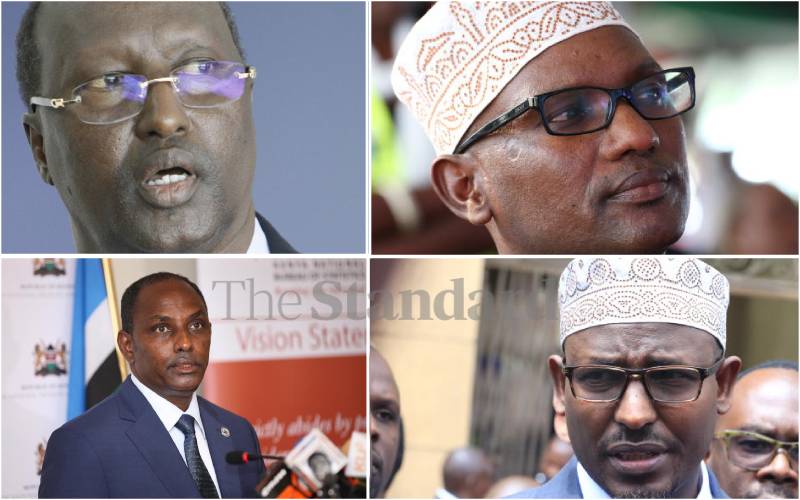×
The Standard e-Paper
Kenya’s Boldest Voice

Top, Mohamed Kuti, Godana Doyo, Ukur Yatani and Abdullahi Ahmed. [File, Standard]
Powerful council of elders from counties in northern Kenya are facing a litmus test as they seek to influence elections despite growing rebellion against ‘negotiated democracy’ used in the past.